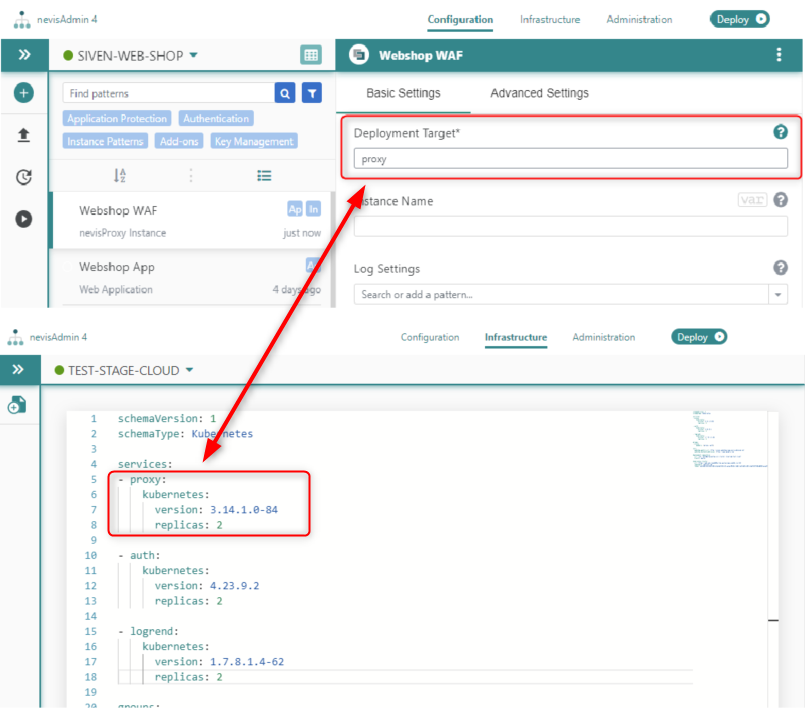Setting Deployment Target
Instance patterns, or deployable patterns, represent Nevis components. You use the instance patterns to create instances of the Nevis components nevisAuth, nevisIDM, nevisProxy and nevisReports in designated directories on the target hosts.
To find the instance patterns, use the Instance Patterns category filter
- either when you are adding a new pattern (no. 1 in the next figure), or
- in the Find Patterns field of a project (no. 2 in the figure).
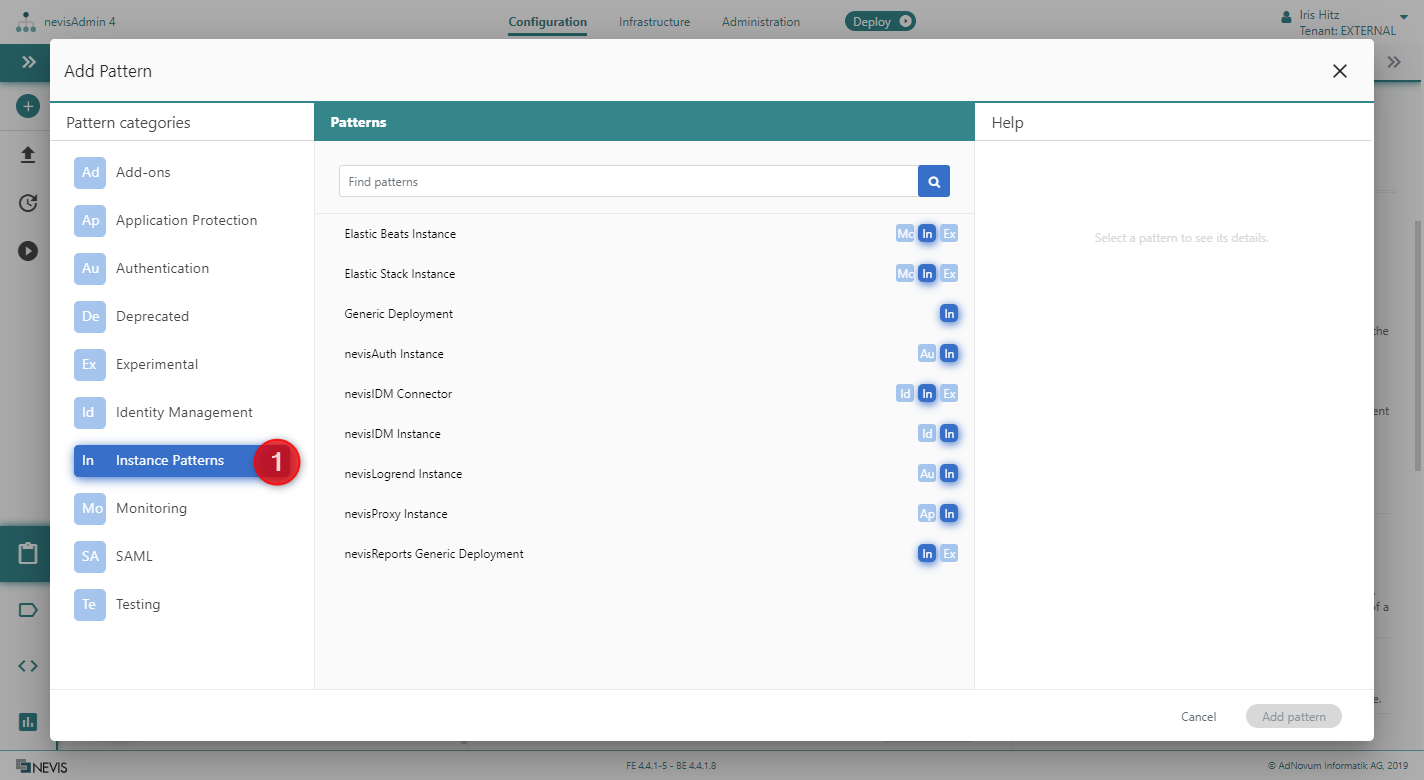
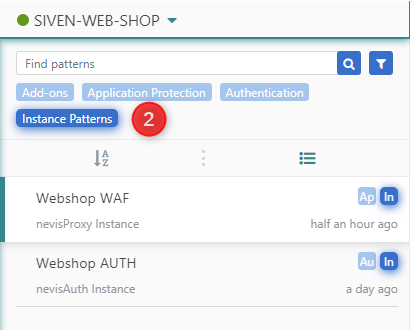
Defining the Deployment Target
To successfully configure an instance pattern, define the pattern property/field Deployment Target (see the next figure). This field is only available for instance patterns.
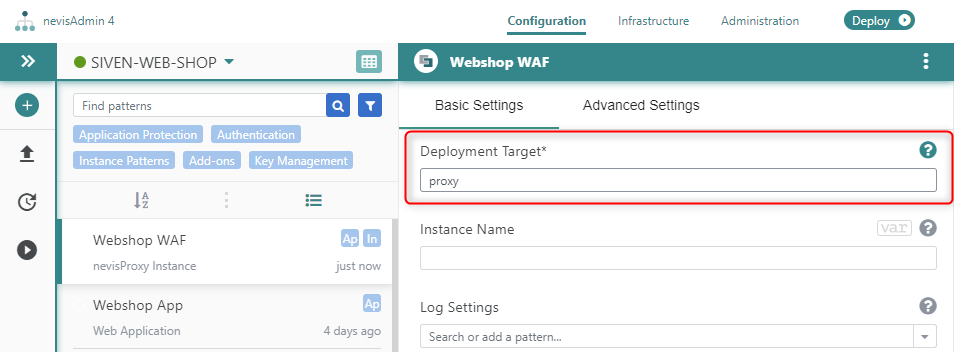
Depending on the deployment type (classic or Kubernetes), the Deployment Target field has a different meaning:
- Classic deployment: The Deployment Target field defines the target host or group of hosts where the Nevis component will be deployed. See Classic Infrastructure Inventory YAML file format to find out more about hosts and host groups.
- Kubernetes deployment: The Deployment Target field defines the Kubernetes services that will deploy the Nevis component in the Kubernetes cluster. See Kubernetes Infrastructure Inventory YAML file format to find out more about defining Kubernetes services.
Deployment Target - Classic Deployment
In the next figure, the value set for the Deployment Target field ("proxy") is referencing a host group. You define and modify host groups in an inventory file (see Defining Host Groups). . During deployment, the host group set in the Deployment Target field is matched with the host group in the inventory that you select for deployment.
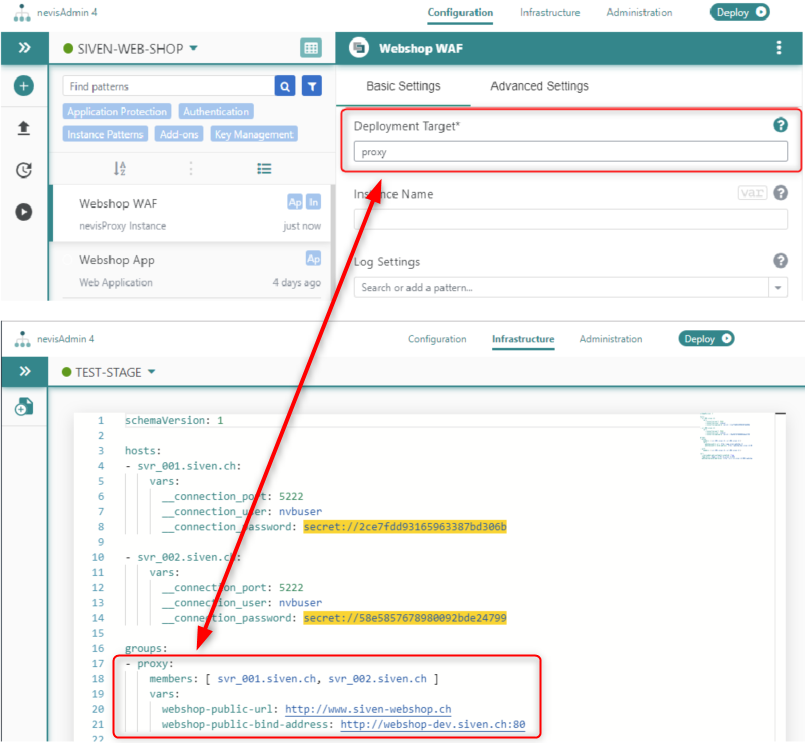
Deployment Target - Kubernetes Deployment
In the next figure, the value set for the Deployment Target field ("proxy") is referencing a Kubernetes service. You define and modify Kubernetes services in an inventory file (see Defining Services). During deployment, the Kubernetes service set in the Deployment Target field is matched with the Kubernetes service in the inventory that you select for deployment.
